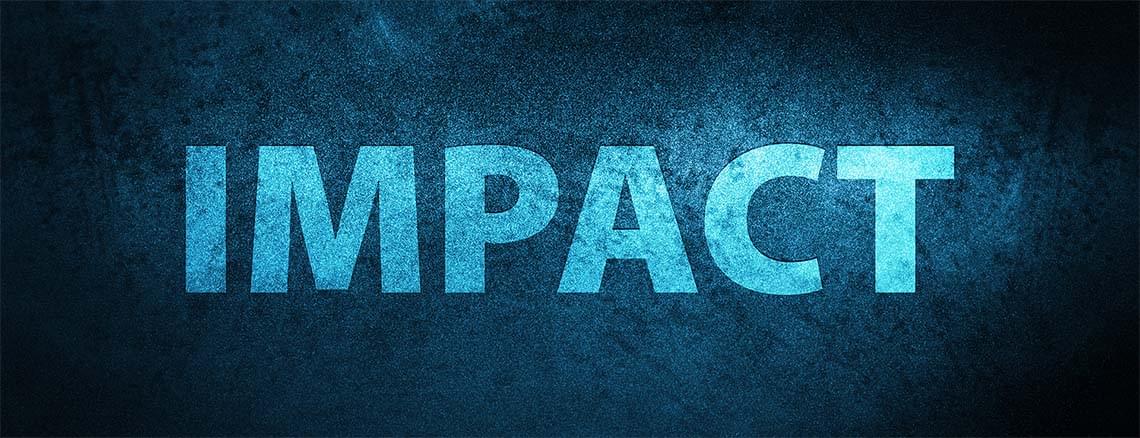Overview of impact investing
The Global Impact Investing Network (GIIN) defines impact investments as "investments made into companies, organizations, and funds with the intention to generate social and environmental impact alongside a financial return".
Whereas financial returns are typically measured using commonly used metrics (ROE, ROI, etc.), what distinguishes impact investing is the measurement of social returns as well. Within this context, the main points to consider when measuring social returns are according to the United Nations Development Programme (UNDP) [3] are:
- Outputs are activities carried out by an organization or project. Outputs are meaningless without context. Let's take the example of building a solar power or solar farm to provide reliable power to communities for the first time.
- Outcomes on the other hand are short or intermediate-term, tangible effects observed by project beneficiaries. A tangible effect from the construction of the solar farm would be for example a reduction in energy costs for the project beneficiaries.
- Impacts are broader, more long-term and sweeping changes usually affecting a larger groups of people or community. Measuring impact in this sense is extremely difficult, particularly with regards to being able to isolate and quantify changes that are directly related to a project (i.e. holding all else constant).
Foundations of Islamic finance
Islamic finance or Sharia-compliant finance involves financing activities that comply with the Sharia (Islamic law). For instance some prohibited activities include that financing must not involve:
- Riba or an increase in capital without any real services provided - akin to "usury" or unjust exploitative gains.
- Gharar or speculation or chance is not allowed - this includes for example excessive uncertainty regarding essential elements of a contract, such as price in a contract of sale.
- Haram (Forbidden) businesses or industries - This practically involves an exclusionary screening process as it is forbidden to finance companies that derive significant income from the sale of alcohol, tobacco, pork, weapons, gambling, pornography and interest-based financial institutions.
Other values-based investing strategies
Socially Responsible Investing (SRI) also known as ethical investing, involves avoiding industries that negatively affect the environment and its people.This includes actively removing or choosing investments from a portfolio based on specific ethical criteria. SRI exclusionary screening avoids for example companies that produce or invest in alcohol, tobacco, gambling and weapons. Environmental, Social & Governance (ESG) investing grew out of investment philosophies such as SRI. ESG however is a framework for evaluating companies and not a standalone investment strategy. It is intentionally neutral - Not faith, country or industry specific.
Areas of overlap
Islamic finance & SRI show some similarities in their objectives (do good, avoid harm), methods (exclusionary screening) & claims (an emphasis on ethics). As mentioned earlier however, Islamic finance goes beyond the purpose of financing to cover the structure of financing as well. Islamic screening also goes over and above SRI screening to exclude other sectors such as interest-based financial institutions for example.
Similarities between impact investing and Islamic finance on the other hand stem from a a strong emphasis in Islam on social and economic justice as well as supporting any action with a view to protecting the planet and the environment. One area of overlap for example is around access to finance for the world's populations that are directly or indirectly kept out of formal financial sectors. Another interesting development is the issuance of green sukuks that are Sharia-compliant investments in renewable energy and other environmental assets. They address Sharia concerns for protecting the environment. It is however important to note that more has to be done in the Islamic finance space to measure impact and in particular measuring outcomes.
What is the role of Qardus?
Qardus is a social impact investment platform that promotes financial inclusion. The SMEs we finance in the UK were prior to this financially excluded due to the lack of financial products that conform with their ethics & values. Financial inclusion is positioned prominently as an enabler of other development goals in the 2030 UN Sustainable Development Goals (UN SDGs) such as regarding SDG 8 on promoting economic growth & jobs & SDG 10 on reducing inequality.
Along these lines, a recent report by Oxford Economics has also attempted to measure the outcome of lending on another crowdfunding (P2P) platform [4]. The report on page 9 indicated for every £1 million lent on their platform, there was a £2 million contribution to GDP, 37 jobs were supported, and £635k were generated in taxes.
[1] http://www.gsi-alliance.org/
[2] https://thegiin.org/research/publication/impinv-survey-2020
[3] https://www.undp.org/content/dam/istanbul/docs/Islamic_Finance_Impact.pdf
[4] https://www.oxfordeconomics.com/recent-releases/1074dfbd-d5e1-4498-abd3-95b399ad63fc
